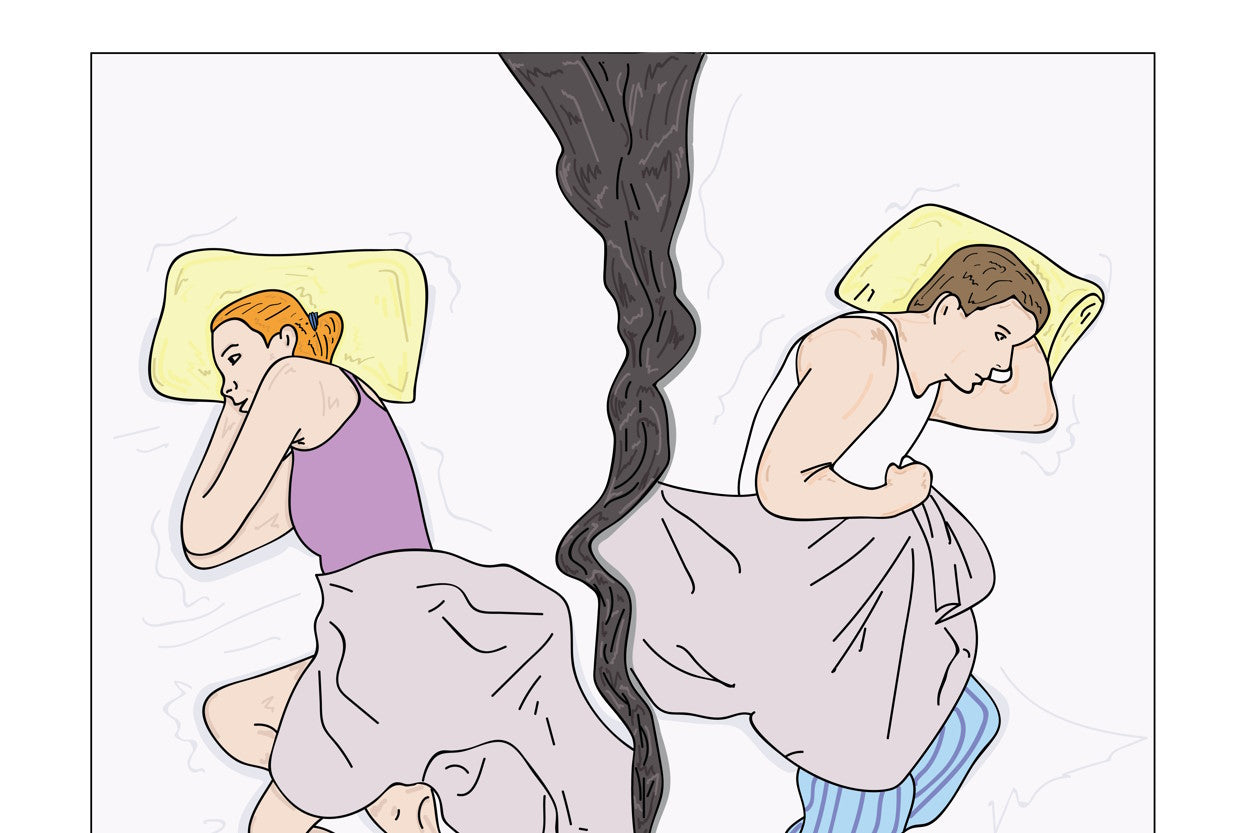Sleep divorce is a growing trend among couples who love each other but have trouble sleeping in the same bed. Quality sleep is important for your mental and physical health, and some people just can’t get a good night’s rest in the same bed as their partner. If you often find yourself up at night, staring at the ceiling and debating whether you should wake your partner up to stop their snoring, it may be time to explore the idea of a sleep divorce.
What is a sleep divorce?
Sleep divorce means sleeping in a separate bed from your partner. Despite its scary-sounding name, it has nothing to do with problems in your relationship (unless you count sleepless nights). There are plenty of reasons a happy couple may consider sleeping separately, but they all boil down to one thing: spending the night in the same bed keeps at least one partner from getting enough sleep.

When one partner snores, steals the blankets, has sleep apnea, or tosses and turns all night, it may make it harder for the other person to fall asleep and stay asleep. The goal of any sleep divorce is to find an arrangement that helps both partners get quality sleep while maintaining intimacy and closeness. This could mean sleeping in different beds in the same room or sleeping in separate rooms altogether. You may also choose to only sleep separately on certain nights, like when one of you has to wake up early the next morning.
Pros and cons of couples sleeping separately
Pro: Better sleep.
If you or your partner are missing out on valuable sleep because of one partner’s snoring or blanket-hogging, a sleep divorce may be the best way to get the sleep you need (for adults between 18 and 60, this is 7 or more hours each night).

Con: No built-in intimacy time.
When couples sleep in separate beds, they lose the opportunity for bedtime intimacy and connection. If you choose to try out a sleep divorce, you and your partner will have to consciously plan for intimacy and physical connection during the day.
Pro: Time to miss each other.
When you live together—especially if both partners work at home—you may take your time together for granted. Sleeping separately can give you the opportunity to miss each other and get excited to see each other again each morning.

Con: The sleep divorce stigma.
Though sleep divorce is becoming more common, there’s still a stigma around couples sleeping in separate beds. This may affect how you, your partner, or your friends and family view the health of your relationship.
Pro: May help you and your partner grow closer.
When you get better sleep, you feel better throughout the day. You may find yourself enjoying your partner’s company more after a sleep divorce (and the extra energy from getting a good night’s sleep can be great for your sex life too).

If you’re not ready for a sleep divorce, try looking for different answers to your sleep problems, such as sleeping with separate blankets to prevent cover hogging or using a white noise machine, fan, or air purifier at night to help drown out loud snoring. Work together with your partner to find a solution that works for both of you, and don’t be afraid to get creative!












